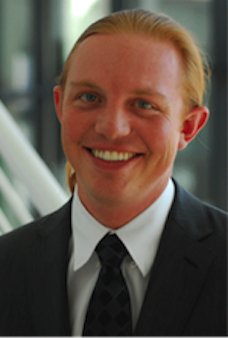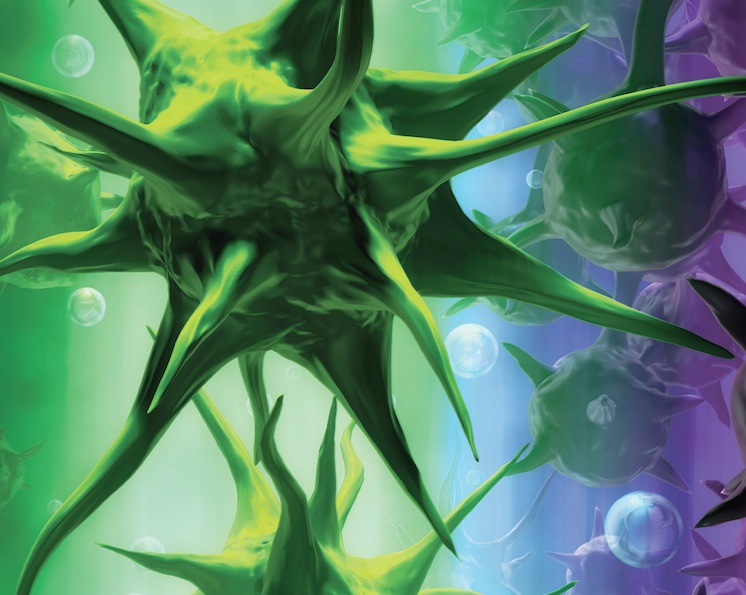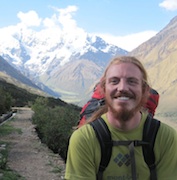Kate Flynn

Click here for Q & A with Cole DeForest
ChemE continues to grow, this year with the addition of new faculty member Cole DeForest. Professor DeForest brings expertise in the areas of biomaterials, stem cell biology, and protein engineering. “Cole’s excellent training, demonstrated research creativity, and ability to articulate ideas are the hallmarks of an outstanding faculty member,” said Daniel Schwartz, department chair. “His collaboration with the UW School of Medicine Institute for Stem Cell and Regenerative Medicine means he is part of a team that has the ability to turn promising research results into technologies that improve human health. He is poised to become a leader in the biomaterials and tissue engineering field.”
DeForest considers UW to be the premier university for biomaterial-based science and notes that “UW ChemE possesses an unrivaled sense of camaraderie and collaboration, both critical in tackling ‘big’ research problems such as those related to human health.” Reflecting on the ways his research focus aligns with the department’s diverse expertise, he says “I expect that aspects of the biomaterial systems I develop will find utility in the clean-tech sector, just as the nanosciences will shape how we approach cell culture.”
 Formally trained as a chemical engineer, DeForest brings additional expertise in material science, organic synthesis, polymer chemistry, bioengineering, biophysics, protein engineering, and photochemistry. His postdoctoral research at the California Institute of Technology with Professor David Tirrell focused on the development of a novel class of engineered protein therapeutics whose delivery profile can be dictated precisely with light and offers promising new avenues in needleless-treatment of chronic illness and early-stage detection of disease.
Formally trained as a chemical engineer, DeForest brings additional expertise in material science, organic synthesis, polymer chemistry, bioengineering, biophysics, protein engineering, and photochemistry. His postdoctoral research at the California Institute of Technology with Professor David Tirrell focused on the development of a novel class of engineered protein therapeutics whose delivery profile can be dictated precisely with light and offers promising new avenues in needleless-treatment of chronic illness and early-stage detection of disease.
After growing up in Boulder, Colorado, which gave him “a deep appreciation for the solitude offered by the outdoors,” he spent the last 1.5 years in Los Angeles, where he “developed a taste for the cultural amenities afforded by a large, coastal metropolis.” He describes his move to Seattle as a chance to partake of both worlds. After a brief holiday in South America, he will be heading up the coast to join us in January 2014.
Prof. DeForest in his own words:

Why UW ChemE?
UW ChemE possesses an unrivaled sense of camaraderie and collaboration, both critical in tackling "big" research problems such as those related to human health. Historical interactions between ChemE, BioE, and the School of Medicine have resulted in UW being considered as the premier University for biomaterial-based science. With its strong emphasis on innovative teaching methodologies and cutting-edge research, the department is uniquely poised to further strengthen this reputation in the coming years.
What are you most looking forward to about moving to Seattle?
Growing up in Boulder, Colorado, I have a deep appreciation for the solitude offered by the outdoors. Having spent the last 1.5 years in Los Angeles, I have also developed a taste for the cultural amenities afforded by a large, coastal metropolis. Combining these favorite aspects of my previous homes, I couldn't be more thrilled about moving to Seattle!
What initial projects are you excited to get working on in January?
We will be developing novel biomaterial platforms to probe and direct stem cell fate in 3D. The biochemical and biophysical properties of these systems can be tuned however we want, whenever we want, in order to better understand basic cell function and to engineer complex heterogeneous tissue.
How does your research focus align with the department's diverse expertise?
The principles of Chemical Engineering govern all aspects of life. While my interests primarily fall within the Materials & Interfaces and Living Systems & Biomolcular Processes research clusters, UW ChemE's emphasis on molecular engineering demonstrates a clear commitment to promote department-wide interactions between diverse groups of students and faculty. I expect that aspects of the biomaterial systems that I develop will find utility in the clean-tech sector, just as the nanosciences will shape how we approach 3D cell culture.
Could you give us your perspective on your collaboration with ISCRM?
The ISCRM represents a group of >130 faculty conducting basic stem cell research and operates under a shared commitment to develop patient cures. The clinical and biological know-how, coupled with the world-class core facilities and staff, will help guide our basic research and transform our technologies into real-world therapies.
What do you like most about teaching?
One of my favorite things in life is helping to play a part in the "eureka" moment for a student. Whether is in implementing a tricky equation into MATLAB, solving the steady-state approximation for a reaction-diffusion problem, or determining what one wants to do after their degree, there is nothing that makes me happier than to see that satisfactory "I get it!" smile!
What big questions drive your research?
How can we exploit chemistry, material science, and stem cell biology to aid in human health? Can we engineer functional human tissues such that organ donation is a thing of the past?
What inspires you to engage with these particular questions?
Human health affects everyone. If I can play a part in extending or increasing the quality of even just one person's life, all of my research efforts will have been worth it.
How soon will you and your colleagues have an answer for us?
More and more cell-based therapies are entering FDA trials each day. I expect that we will see a flood of invaluable products on the market within the next 5-10 years.
Professor DeForest's faculty page